O Meu Diário de Coimbra
March 3rd to March 9th
Coimbra, Portugal is a beautiful, old city, filled with students from The University of Coimbra — the oldest university in the country (that’s it on the top of the hill) — who walk around in capes and look like extras from a Harry Potter film.
The university was founded in the 13th Century by a king whose statue is still up on campus.
The whole shebang has been a UNESCO World Heritage site since June 2013, meaning the area is intended for, according to the U.N. agency, “Practical conservation for posterity, which otherwise would be subject to risk from human or animal trespassing, unmonitored, uncontrolled or unrestricted access, or threat from local administrative negligence.” A long way of saying you won’t find a Chipotle or Starbucks on the lower level of Biblioteca Geral Da Universidade De Coimbra, known as The Joanina Library.
It’s a place where the bats keep things tidy.
And apparently, this isn’t just one odd, book-loving bat who showed up one time on this one book.
From magazine.000 Libraries Magazine
It is estimated that the colony of bats that inhabit (yes, inhabit!) the Joanine Library dates back 250 years. Their origin is a bit of a mystery, but they can be traced back to at least the early 1800s. Since then, they’ve lived in and served the library as natural pest control. The elimination of pests by the bats protects the books from invasive damage.
But bats, like folklore, can be messy.
Employees of the library have perfected the co-working space they share with their bats. Genuine leather cloths are draped over bookshelves and tables in the library to protect furniture from bat droppings and each morning the library is cleaned and dusted before visitors come in.
In Coimbra, there are cobblestone streets all over, as the brochures and Rick Steves will tell you, but there are also an inordinate, bordering on troubling, number of optometrists and barbershops here, which Yelp and Steves rarely mention.
Previously . . .
March 3rd
At the Praça do Comercio, there is the scent of marijuana -- it’s called maconha here -- in the air today. It’s legal for medical purposes, as it is for small amounts for personal use, as it is, at least from some of the people chiming in about it online, for any amount of use if the cop isn't a prick. Prostitution is also legal in the country — it came up unsolicited in a search. I wasn’t checking, I swear —but it is illegal for a third party to profit from, promote, encourage or facilitate the prostitution of another, consequently, organized prostitution (brothels, prostitution rings or other forms of pimping) is prohibited.
Just as it does with health insurance, Portugal lowers prices by removing the middle man.
There were children, underneath my apartment window this morning, in costumes and masks. I had to be told that tomorrow is Mardi Gras/Fat Tuesday, the last day before Lent. Jews have Purim, another of our many holidays where we’re saved from annihilation before eating. This time, it’s Haman, who’s an adviser to King Ahashverosh — think Elon Musk — who plots to exterminate all of the Jews of Persia.
But it’s the only annihilation we get dressed up for.
Here’s a not very good picture of the kids below my apartment.
At CTT (Correios, Telégrafos e Telefones), the public, private, hybrid post office in the country — think UPS and USPS in one well-lit, well-run facility — I went to pick up a package that I ordered from Amazon Spain. There is no Amazon distribution in Portugal, so all deliveries to the country come from Spain or Germany, meaning one-day delivery is rare. My experience so far is that things take two to three days to arrive, which is fine, actually. There’s rarely any reason to get a USB hub 24 hours after ordering one.
The country has had mail service since King Manuel I created Correio Público, the Public Post Office, in 1533, back when Jeff Bezos's great, great, great, great, great grandfather was forcing small shop owners in Lisbon out of business and strong-arming the local press.
Ava’s English was as bad as my Portuguese, but we managed after a rocky start.
I wanted to ask if she spoke English, which would have been "Você fala inglês?" but what came out was "Falar Inglês!" which is more of a command to speak my language — and even though we won the war, and I’m entitled to demand such things, I’m trying to my part in how the world views America.
Ava went in the back room to get the package and returned empty handed.
“She’s lost," she said, "but don’t worry, we’ll find her.”
In Portuguese USB hubs must take the female pronoun.
Big festival last night on the lower level of the Praça.
I was approached by a writer, Cassiel, a self-published poet, he mentioned, who asked me if I wanted to buy his three volumes of poetry, all written in Portuguese. He pulled copies of them out of his knapsack and told me to look through them.
Apparently I did it wrong.
“OK,” he said, “you’re not really looking.”
“I’m looking, I looking. They’re in Portuguese.”
I told him I was a writer, too.
“Of what?”
“Politics.”
“Oh, shit. Why?”
“Good question.”
“Do you know anyone who’d like to buy my books since you’re not going to?” he asked.
“No. Desculpe.”
I got that word down.
I then heard two people playing music on the steps in front of the church at Cafe Santa Cruz. The guy had a drum, the girl had a guitar and they were playing and singing something you might hear at a coffee house during an open Mic night.
“Which way are you going?” Cassiel took my phone and typed in his number so we could stay in touch.
“I’m going to listen to them,” I said, pointing to the duo.
“I heard them. They’re not very good.”
“Call me,” he said, “I am at the hostel. You?”
“Over there,” I pointed in a direction I don’t live.
He was right about the duo.
(I have no idea what this last picture is about.)
March 4th
On the steps outside Santa Cruz Church, a painfully thin girl with bad acne and playing an electric keyboard is singing Phil Collins’ “Against All Odds” in Portuguese with a disturbing passion. When she gets to “You're the only one who really knew me at all” — or what sounds like the line — it’s no longer just a lyric in a song. It doesn’t matter that she’s off-key.
She’s also selling crystals during breaks.
I had another piece of cake today at Visconde Pastelaria, whose desserts and sandwiches are more extensive and just better than those at Cafe Santa Cruz, which is attached to the church and next door.
A couple brought a puppy to the cafe and one of the waitresses, the tall one with the lip piercing and stud earring under her nose, wearing work boots and flowing black pants that look almost circus-y, sat on the ground, tossing the dog in the air and catching and cradling the little black lab each time it landed. She clearly spoke dog.
Someone the spitting image of Arthur Miller during the time he was married to Marilyn Monroe, just walked by. A policeman then drove by in a small electric car — they’re allowed on the plaza — slowed down, smiled at me, and gave me a very non-Trumpian thumbs up. I smiled back and returned the gesture with my best non-Trumpian pose. The secret is to extend your thumb without a smug, fuck you look.
Before arriving in Portugal, I didn’t know the name of the country’s prime minister, Luís Montenegro, or the president, Marcelo Nuno Duarte Rebelo de Sousa, or the leaders of the two majority parties, Socialist Party Partido Socialista, Pedro Nuno Santos and CHEnough Chega, André Ventura, or the president of the Supreme Court of Justice, Henrique Luís de Brito de Araújo, or that I was in the Third Portuguese Republic. The First Republic ended in 1926 when a military coup established an authoritarian government called Estado Novo, led by António de Oliveira Salazar until 1968, who was then succeeded by Marcelo Caetano. That was the Second.
If you’re ever on Jeopardy! some of that might come in handy.
So, this, is the Third Portuguese Republic, signifying the period in the country’s history that followed the end of Caetano's regime. It happened in 1974 and was called the Carnation Revolution because, legend has it, almost no shots were fired during the insurgency, a, and b, a waiter, legend also has it, stuck carnations in the barrels of soldiers’ rifles during the afterparty.
Hard to imagine anything in America these days being resolved with flowers.
March 5th
Was invited today by three Turkish students — the two from yesterday, Isil and Faysal, with the happy dog (who also came back), and joined by their friend Melih — to sit with them outside at Visconde Pastelaria. They drank beer and Espresso and alternated between Turkish and English when they got excited. Faysal chain-smoked and told me about the €350/per month apartment in which he and Isil and the happy dog live. They have to share a communal bathroom and kitchen with other students and the bathroom, he says, sometimes gets "very bad."
“It’s not so good," he said of the place, "but it’s OK.”
Melih lives in one of the high-rises on the south side, the newer side, of town. He then said something about his ex-girlfriend stealing his passport number.
“Bad breakup?” I asked.
His eyes got wide.
"Say in Turkish," Faysal told him, laughing.
Melih smiled.
I was sitting in a Portuguese cafe at four o'clock in the afternoon with the sun peaking down between 13th Century buildings, talking with three young, disillusioned Turks from Istanbul, one of whom was feeding a dog with snacks she had in her pocket.
Life, boy, I don’t know.
Melih went in the cafe to get his laptop, which, apparently, was charging.
When he returned, I told them the joke I once heard from a Turkish comedian who told the crowd that while all the men in her family were doctors in the Turkish village in which she was raised, they were now cab drivers and convenience store workers and housekeepers in America. The audience gasped at the sadness and pathos of that until she said, "No, no, no, don’t feel bad. In my country, you’re a doctor if you have a snake and a flute.”
Isil, Melih, and Faysal cackled.
“No, not such a joke,” said Faysal.
“It’s maybe true,” said Isil.
They found me on YouTube.
“What is your TED about?” one of the them asked about my TED Talk.
“Death.”
More beer arrived.
“I was in Boston once,” said Melih, “and I loved it. It was crazy crazy. Everybody . . . wow! I didn’t want to leave.”
“You wanted to leave America?” asked Faysal. “Why? We want to go.”
“We Americans want to get out; the rest of the world wants to get in. Weird. Anyway, I left for the same reason you wanted to leave Turkey. You have Erdoğan, we have Trump. They want to be each other. It’s getting bad.”
“Turkey, too,” Faysal said.
“I think,” said Melih, “the minute a government starts talking religion, the country is finished.”
I went again to Restaurante Escapes De Montarroio (Restaurant of Climbing Steps), owned by Baraat and his brother and cousin. Last night, he made me butter chicken and rice and gave me a basket of garlic naan and told me when I came back, he'd make me a better pizza than his friend Ali from Pizza e Pasta has been making me for days. They’re friends from the same village in India and now they own restaurants on the same block, on the same hill in Coimbra.
He remembered me.
“O que recomenda?” I asked.
“I make you the chicken and onion pizza.”
“Can I have mushrooms instead of the onions?”
“Sure, sure.”
I then saw him leave the restaurant.
“I go,” he says, “to the market to find fresh mushrooms for you. We have but not good enough. I tell Zahir to bring you something while you wait.”
Zahir, his brother, soon came out with a mango smoothie.
“Free. On me. On . . . house,” he said.
“Obrigado.”
Soon Baraat returned.
“Good?” he asked, pointing to the drink
“Muito.”
“My uncle drinks. Apple smoothies, too. It makes him,” and Baraat flexed his arms and chest, "Oof! Doctors can’t believe it. Strong even at 110.”
He brought the mushrooms to Zahir.
A woman came in.
“Ah, takeaway, takeaway, yes,” said Baraat, handing her the order.
She looked inside.
“Do you have a fork?” she asked. “Plastic, maybe. To take with me.”
“No,” said Baraat. “But take this one,” he said, handing her a stainless steel one off a table.
“You sure?” she asked.
“Yes, yes. Please. I have many.”
“I love your place here,” I said at the end of my meal, as I paid the €6 for my chicken and very fresh mushroom pizza. "I’ll be back soon, maybe tomorrow. Thank you.”
“I’ll make you big, thick, juicy pizza with sauce and cheese next time. I think you’d like better.”
“I think you’re right. You’re too kind.”
“Thank you, thank you,” and then, swear to all the Gods, he pointed to where I was sitting for the second night in a row and said, “I reserve your table for you. Just you.”
March 7th
During the past, I don’t know, hundred years or so in New York City, the cost of a slice of pizza has been about the same price as a subway token. It’s one of those aspects in New York nobody ever thinks about. It was just part of life.
Someone is now thinking about it.
At the moment, a one-way trip on the subway — and nobody has used a token since 2003 — is $2.90. (Half price, $1.45, for the disabled, the poor, and seniors.) According to a guy named Liam Quigly, who tracks the price of a slice (and where do you get a job like this?), life’s delicate balance is now askew. Not by much, but like creeping fascism, you know where this is headed.
Starting in 2014, I logged every slice of pizza I ate in New York City on the Instagram account NYC Slice. The results shown below are collected from 464 slices. Over an eight-year period the average price of a plain slice increased from $2.52 to $3.00. This calculation excludes dollar slices.
Smart exclusion that, because dollar slices are to real pizza what polyurethane is to leather.
From Bloomberg
The “pizza principle,” a mainstay of New York economics for more than four decades, states that a slice of cheese pizza will always be the same price as a subway ride. The rule has largely held true since first conjectured in the New York Times in 1980, with any increase in pizza prices tending to predict a matching hike in public-transit fares.
Not anymore.
Prices for plain slices are soaring above $3 throughout the city along with commodity and labor costs . . . “Stop, stop, stop, stop, stop!” shouted Paul Giannone, the owner of a Greenpoint, Brooklyn, slice shop that bears his nickname, Paulie Gee, when asked about the pizza principle. “I’ve been talking about that for forever. And now there’s a divergence.”
And where have you gone, Paulie Gee? A nation, certainly a city, turns its lonely eyes (and tastebuds) to you.
This is a long way of telling you that yesterday I took the Comboios de Portugal from Coimbra, which is in the middle of the country, to Figueira da Foz, a city at the midpoint of the Iberian Peninsula's Atlantic coast. It shares the same latitude with Philadelphia, Baku and Beijing — and I have no idea why I’m mentioning that.
The two cities are 41 km (26 miles) apart and the roundtrip fare is — and this is the point — 6.10€, which would be astonishing in and of itself, but since I’m a senior, it’s only 3.05€. I don't like taking that discount because of all it represents. I mean, who wants to be an old guy on a train?
But this joke helps explain why I do.
A teacher told her class one Friday morning she would give any student the rest of the day off school if he or she could name the most important person in history. Joshua, who was Jewish, blurted out, "Jesus Christ."
“That’s correct,” said the teacher, "but Joshua, I thought you being Jewish, you might not feel that way.”
“I don’t,” he said, “but this is business. I’ll see you Monday.”
Most 12-inch pizzas in Coimbra are about 6€ — slices they don’t know from — so, even in Portugal, there’s serendipity between pizza and the cost to ride the rail, at least from Coimbra to Figueira da Foz, which is what I’m talking about here. As to that 26 miles between the two cities, that, too, is similar to the length of travel you could make in NYC. The A train from 207th Street in Manhattan to Far Rockaway in Queens is more than 31 miles. The 2 Train from 241st Street in the Bronx, with a transfer to the Far Rockaway-bound A train is more than 38 miles. At $2.90 each way, those roundtrips would cost $5.80.
$6.10 — Portugal; $5.80 — NYC
Serendipity.
On the other hand, in NYC, you’d be in Queens at the end of your trip, near JFK; in Coimbra, you’d be in Figuera da Foz, near the Atlantic.
(Actually, now that I think about it, you’d also be near the Atlantic in NYC, so forget I said anything.)
The conductor said in broken English when he looked at my ticket that I didn’t look sessenta e sete, (67), which immediately made him my favorite conductor in postwar Europe.
I came to Figueira da Foz because there was an apartment for rent near the ocean. On the way to see it, I saw this, which is enough to make me want to start drinking coffee.
Nothing internal has ever called on me to be close to the water, to return to the origin of life. Even when I’m in The Bahamas (and I’ve been going there for more than 30 years), I don’t go in the ocean, rarely go near it. But I do like knowing it’s there should I ever want to take a look to see where I sprinkled my son’s ashes many, many years ago. When he first started doing drugs, he wrote on MySpace — apparently it still exists — that when he died, he wanted his ashes thrown in the ocean so maybe a Viking ship would come by some day and retrieve them.
Wouldn’t that be something, huh?
In the movie Atlantic City, there’s this exchange between the old man, Lou (Burt Lancaster) and the young kid, Dave (Robert Joy).
Lou: I'd feel bad for a while, but I'd jump into the ocean, swim way out. Come back in feeling nice and clean and start all over again.
Dave: I never seen the Atlantic Ocean till just now.
Lou: The Atlantic Ocean was something then. Yes, you should've seen it in those days.
Here it is from Figueira da Foz. It’s behind the ferris wheel.
The apartment at which I looked faces it, too, sort of. The balcony is about 24 inches wide and faces into another building with other thin balconies, but if you don’t topple over the 4-foot railing, and gingerly turn left, you’ll see the ocean, sort of.
Meanwhile, I had forgotten to bring a phone charger.
“Você fala inglês?” I asked a woman on the street in front of Zeitgeist Caffe
“Você fala inglês?” I asked a woman on the street in front of the zeitgeist caffe
“Yes, yes, I’m British.”
“Wonderful. Do you know where I could find a store that would have a charger for this?” I asked, showing her my iPhone 14 Plus.
“You would have to go to the mall,” she replied, studying it, “which is too far to walk. But maybe you could try the Chinese right store across the street. They have everything.”
So I’ve heard.
March 8th
A march came to the square today for International Women's Day. Fun fact: it was none other than that indefatigable feminist, Vladimir Lenin, who proclaimed March 8th as Woman's Day in 1922 in Moscow. The United Nations officially recognized the day in 1975.
The march stopped in front of the Mosteiro de Santa Cruz and a microphone was set up. As a woman addressed the crowd and a jogger ran by and handed me a pamphlet, I heard a man, embedded in the crowd and holding a Palestinian flag, repeatedly chant something in Arabic.
(Equality At Work. Freedom In Life. Fighting Time. Future of Peace).
Fighting time, huh?
Bought two huge pears and five normal size bananas at the city market from a woman who didn’t speak English. Her son, who did, promised me the pears would be “so juicy, even days from now" and the bananas, best of all, he said, were not Costa Rica’s bananas — and he waived his hand dismissively when he told me that — but Portugal’s.
And in case you forgot your Portuguese banana history -- and who hasn't? -- this from a website called www.saltofportugal.com
One of the simple pleasures of life in Portugal is savoring the delicious bananas produced on Madeira Island. Portuguese sailors brought bananas from West Africa in the 15th century. By 1552, according to British traveler Thomas Nichols, they were already being cultivated in Madeira. The island’s subtropical climate, characterized by mild temperatures and high humidity, provides perfect conditions for growing bananas. Madeira farmers produce bananas on a limited scale and harvest them by hand. Smaller than the common Cavendish variety, they are sweeter and more flavorful, with a delightful lemony taste and a creamy texture.
To close the week, I went, as has been my wont of late, to Restaurante Escapes De Montarroio (Restaurant of Climbing Steps) — or, as I found out today, Combo Coimbra, as it's also known.
My table.
He then made me boneless butter lamb, prepared rice that didn't hurt, and, once again, brought out a basket of garlic naan. I no longer have to tell him about the Coke Zero. It appears almost magically with the naan, as all good Coke products should.
After eating, as I was preparing to leave, I noticed he was on the phone, so I got his attention and waived goodby.
“No, no, no, come, come. Speak to my brother,” he said, motioning me to come back into the restaurant. He handed me the phone. “He's in Stockholm."
"Halo, Barry," I heard a voice say. "I know about your table."
Previous posts . . .

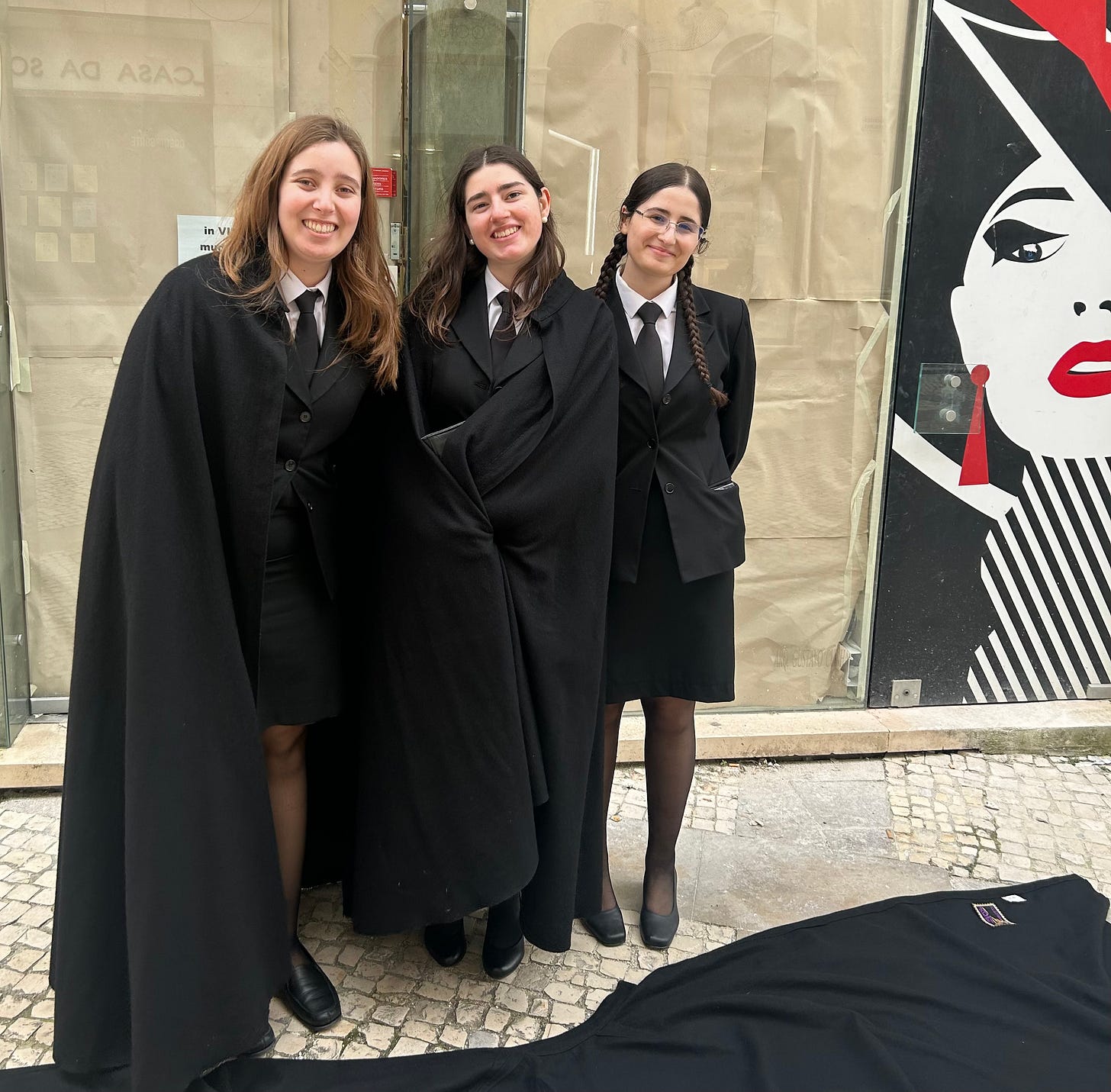
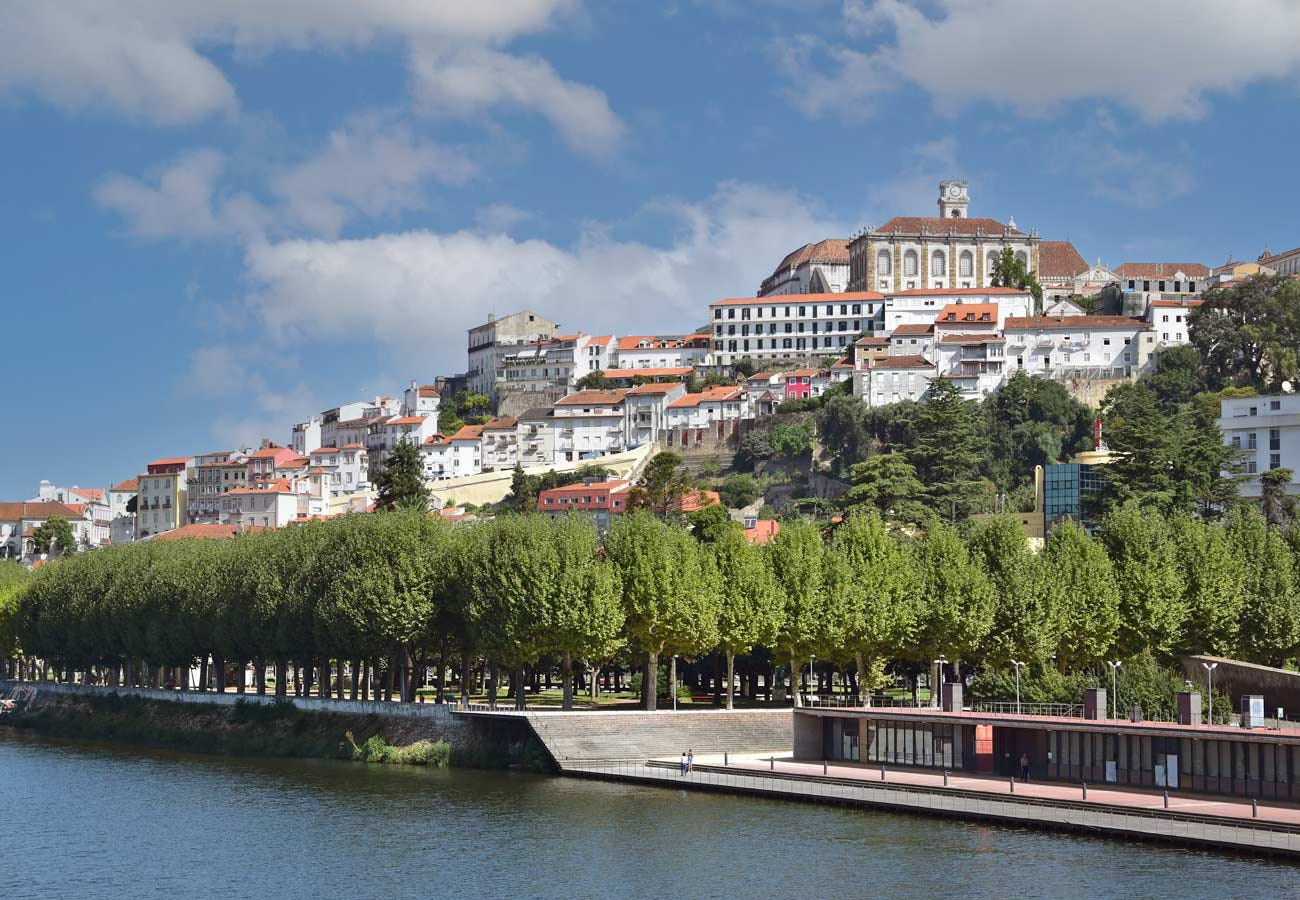




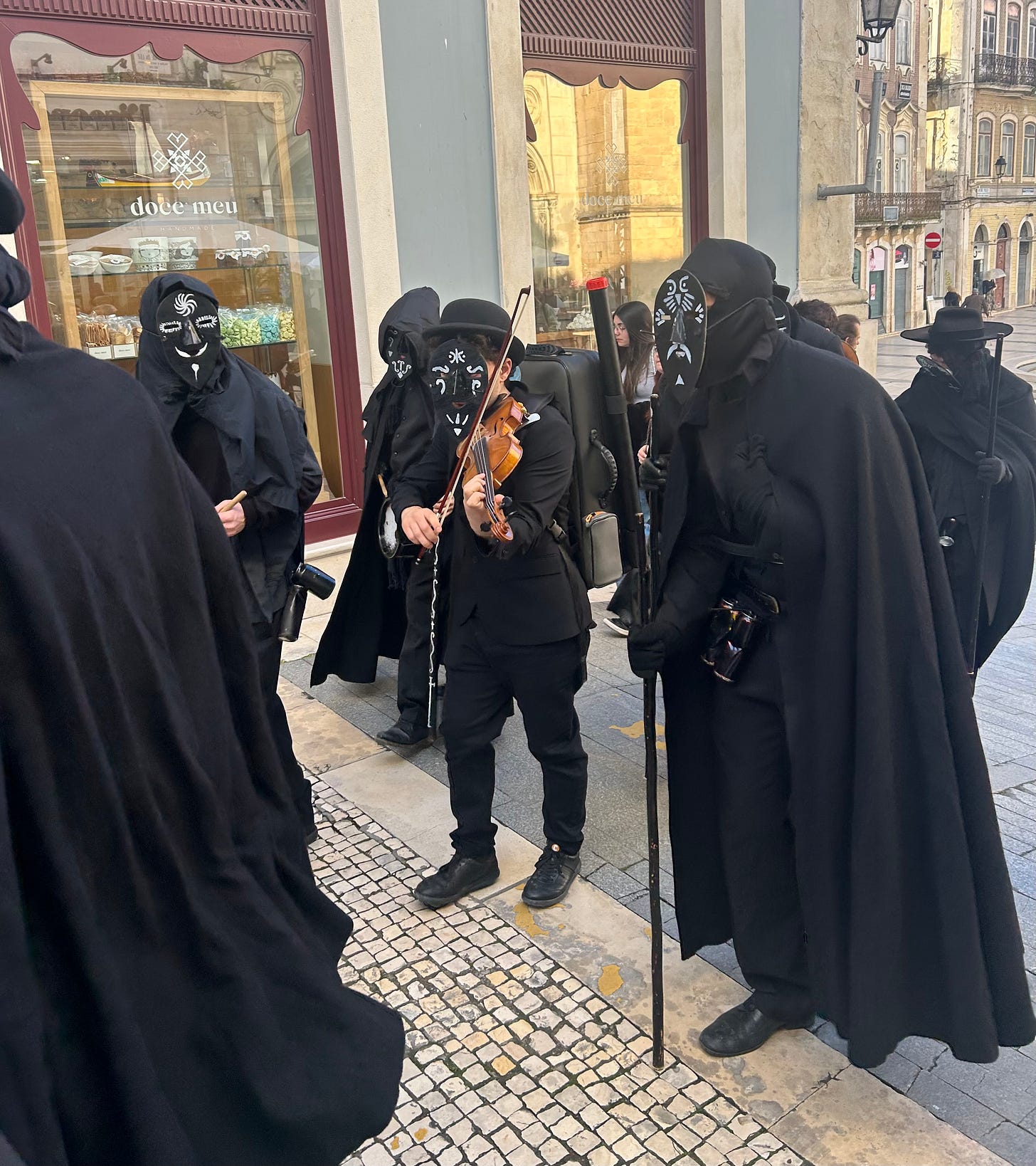




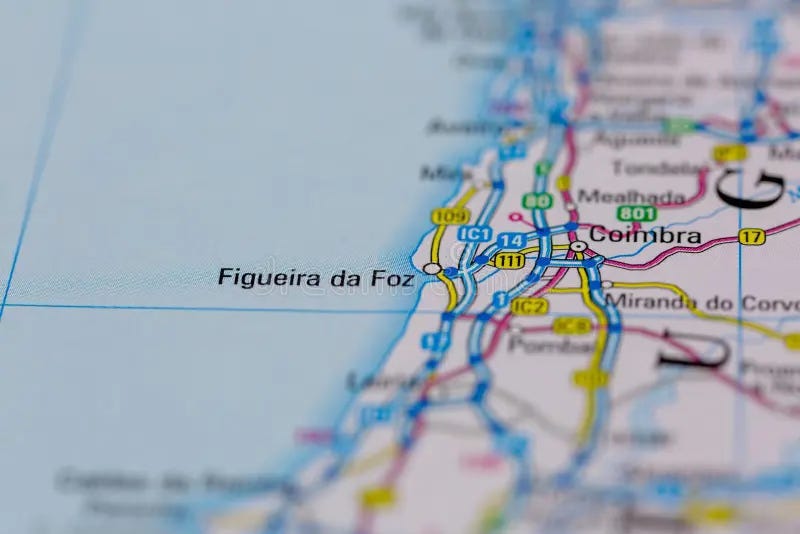
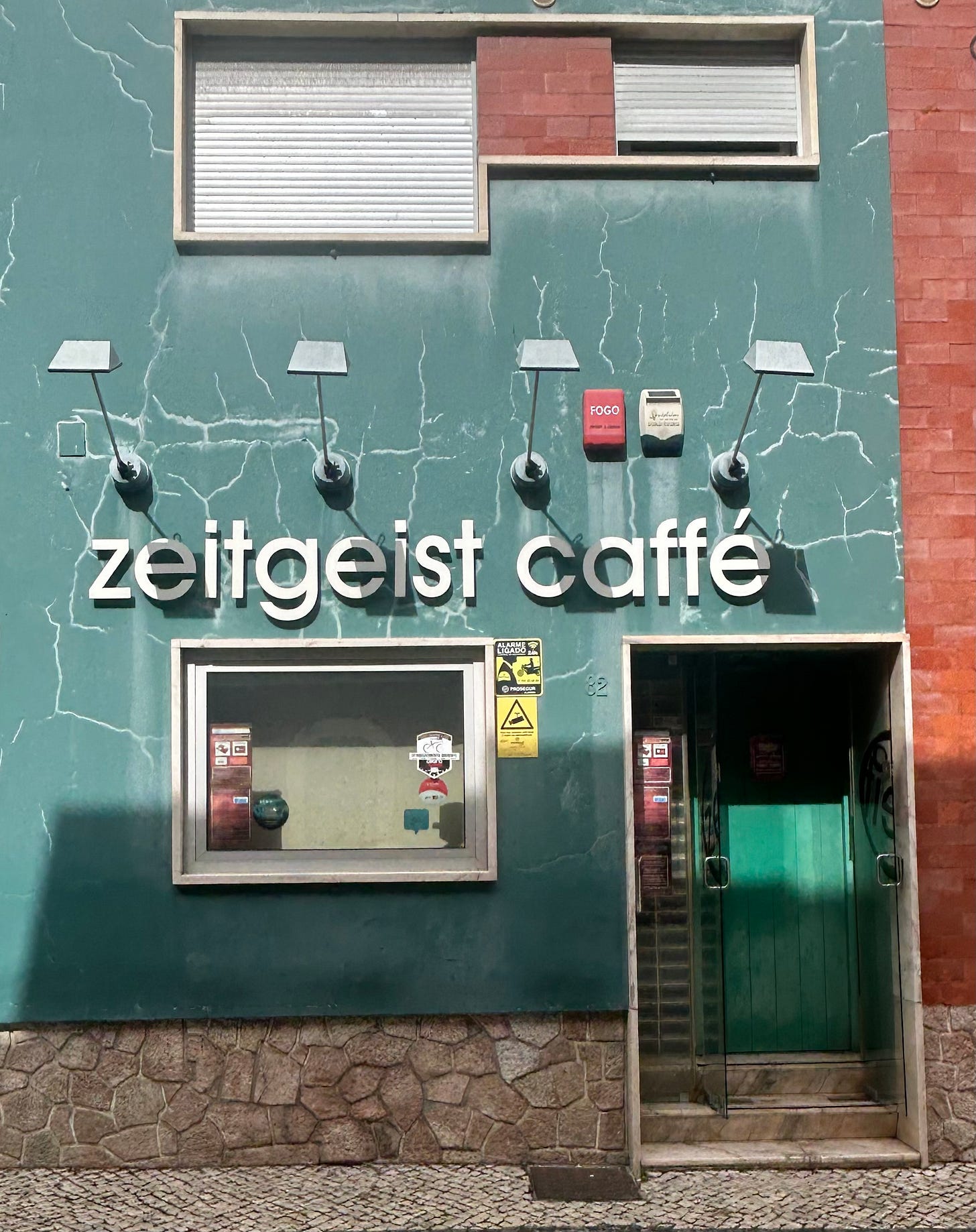


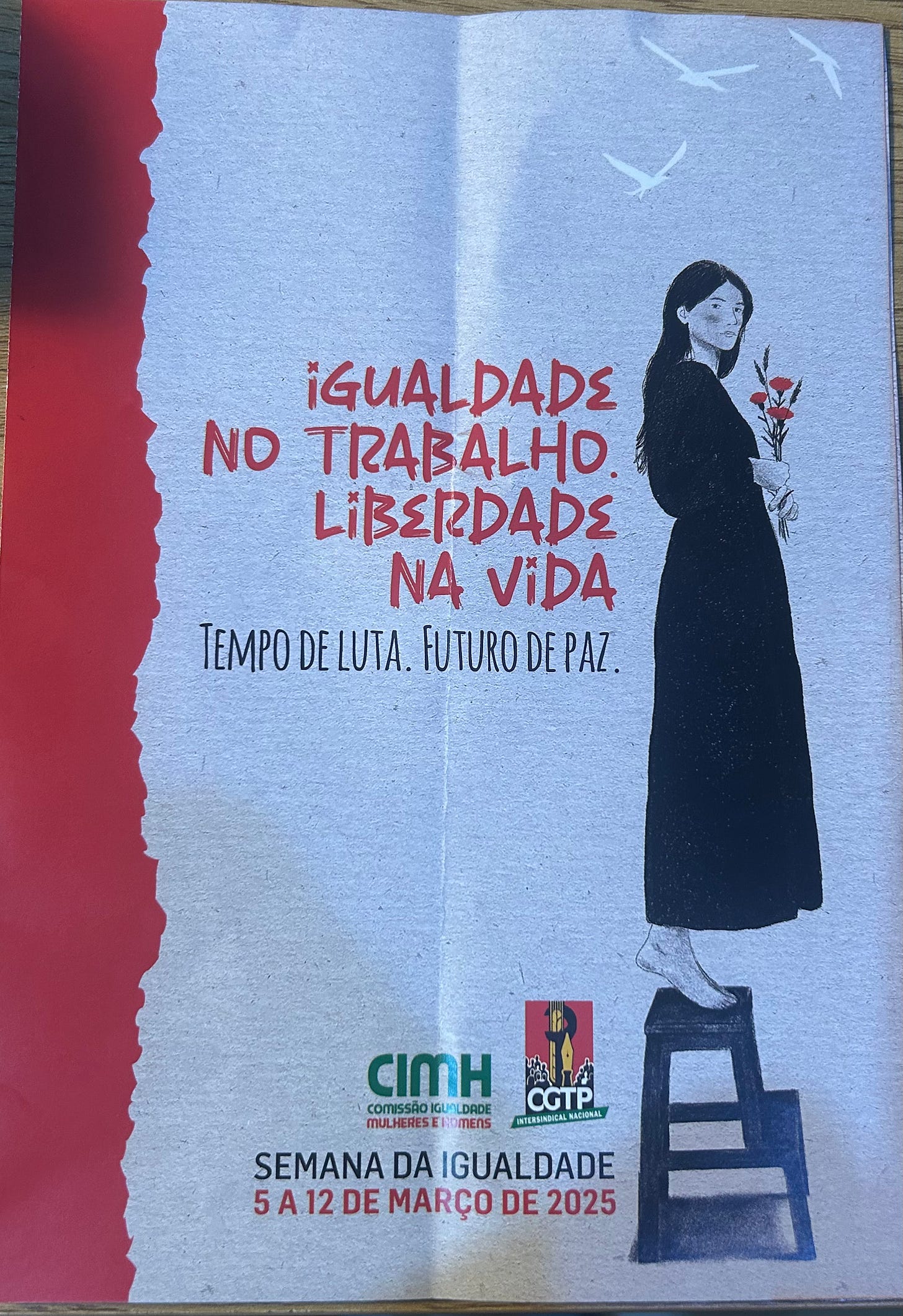
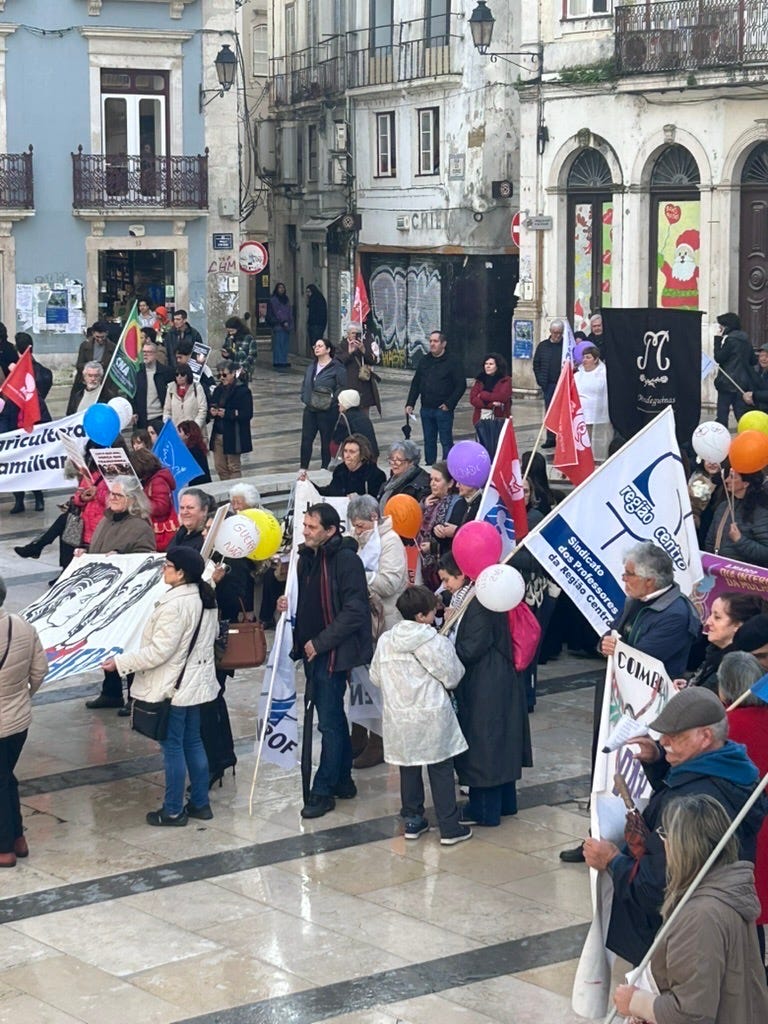




A BarryTable already, eh? You sharp operator.
Other than the Coke Zero it all sounds like a delightful fairy tale, something my wife needs to HEAR.